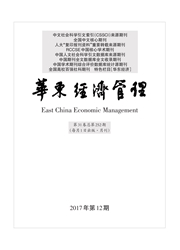

 中文摘要:
中文摘要:
文章利用中国家庭动态跟踪调查(CFPS)数据,分析了失地农民的人力资本、政治资本对其工作获得的影响。研究表明,人力资本对失地农民在城市劳动力市场中的工作获得具有显著的正向影响:文化程度越高,越可能在业(受雇或创业),受雇就业后的工资收入也越高。而政治资本对失地农民的工作获得则产生明显的负向影响:有村干部经历的农民无业的几率更高;如果受雇就业,其工资收入也明显低于普通村民。该发现,一定程度上是对倪志伟“市场转型理论”的验证。
 英文摘要:
英文摘要:
Using the data of Chinese Family Panel Studies (CFPS), this paper analyzes the impacts of human capital and political capital of land-lost farmers on their job obtainment. The study shows that human capital has a significant positive im- pact on job obtainment of land-lost farmers in urban labor markets. The higher the level of education is, the more likely he/ she is to be in work (employment or entrepreneurship), and the higher the wage income is after being employed. However, political capital has a significant negative impact on job obtainment of land-lost farmers. Village cadres are more likely to be unemployed, and their wage income is significantly lower than that of ordinary villagers if being employed. These findings, to some extent, verify Victor Nee' s "Theory of Market Transition" .
 同期刊论文项目
同期刊论文项目
 同项目期刊论文
同项目期刊论文
 期刊信息
期刊信息
